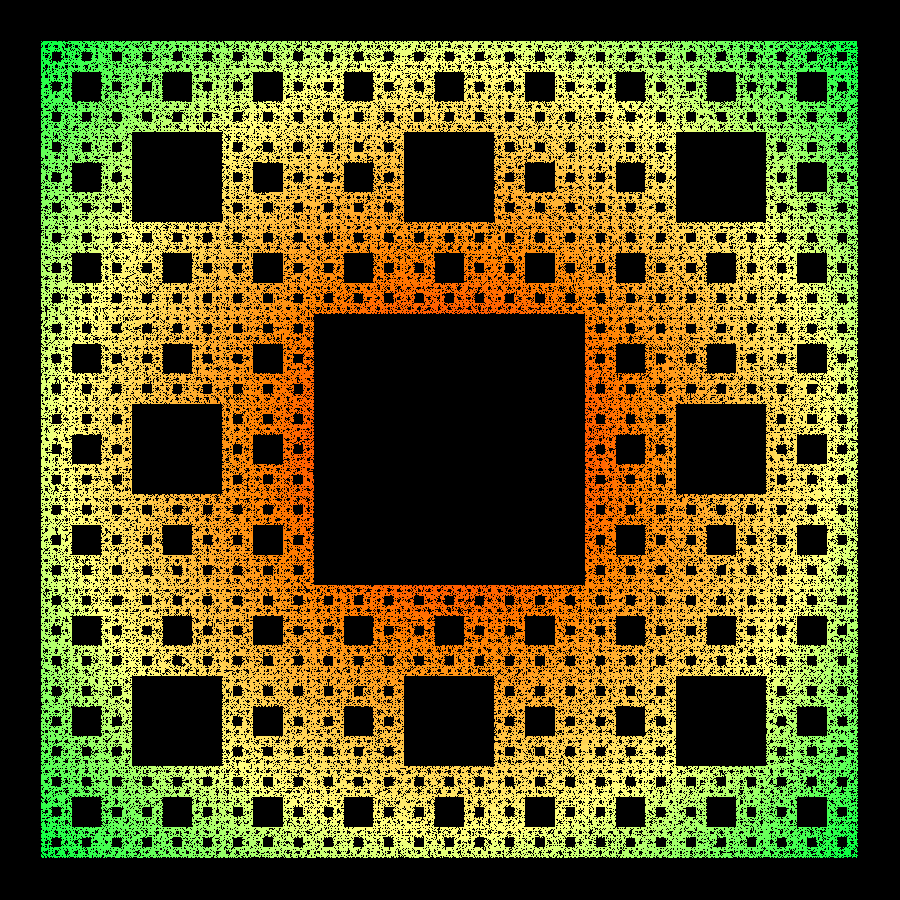Fractals and the Shape of Our Christian Lives
Guest Writers Steve and Sally Harms
carpet
Have you ever come across the concept of fractals? These are never-ending geometric patterns that exhibit self-similarity. One excellent example online is the Sierpiński carpet — a simple square divided into smaller and smaller squares that endlessly repeat the same design (https://commons.wikimedia.org/wiki/File:Sierpinski-carpet.gif#/media/File:Sierpinski-carpet.gif). If you watch the video, you’ll notice the endless repeating themes. Fractals are prevalent in nature, found in various forms, such as snowflakes, trees, river systems, coastlines, and even mountains. A mountain is shaped the way it is because it is composed of similarly shaped rocks, which are made of pebbles, which are made of sand, and finally, molecules. Fractals are widely used in science. Our ability to stream Netflix is due to compression algorithms that utilize fractal-based techniques.
snowflake
In Chaos: Making a New Science, James Gleick describes how fractals help us make sense of what seems chaotic, like weather. Early radar gave scientists vast amounts of information, but prediction didn’t improve until computers could model the patterns of small, local changes. The key to understanding the big picture was in the details of the small things.
Just as the minutiae of weather reveal larger storms, Jesus teaches that the details of our inner lives reveal larger patterns of righteousness or sin. In Matthew 5, He takes the commandment “Do not murder” and breaks it down into its smallest components: “But I tell you that anyone who is angry with a brother or sister will be subject to judgment” (Matthew 5:21-22). Murder doesn’t emerge spontaneously; it begins with the “fractal seed” of anger, which evolves into contempt, which can erupt in destructive action.
Our personalities are akin to fractals. Small emotions grow into attitudes, which form habits, and those habits shape the pattern of our lives. That’s why Jesus emphasizes the urgency of reconciliation: “If you are presenting your gift at the altar and remember that your brother or sister has something against you, leave your gift there… First, go and be reconciled” (Matthew 5: 23–24).
An Olympic athlete achieves victory not through a single grand gesture, but through countless daily trainings that align with their overarching objective. Similarly, a Christian life is not merely a Sunday profession of faith, but a consistent pattern of years, days, hours, and minutes lived faithfully. Each moment embodies the larger framework of discipleship.
Recently, we have seen public figures and institutions targeted by violence fueled by divisive rhetoric. These are tragic reminders of Jesus’ teaching that sin begins not with the final act, but with the seed of anger and contempt. Jesus teaches us that violence starts with a thought, then a word, then an attitude — small steps that, if unchecked, spiral outward until they erupt into destructive action.
This is why we begin with prayer, as found in Psalm 80:19, which urges us to seek restoration and for God’s face to shine upon us, leading to salvation. The psalmists teach us to bring both grief and hope to God. Naaman’s story reminds us that healing and grace come through humility and obedience, not through status or power (as depicted in 2 Kings 5). Paul writes that true Christian life is not about pride, but about walking in the humility of the cross (as expressed in 1 Corinthians 4). Furthermore, Jesus emphasizes that worship and reconciliation are inseparable.
Where do we need reconciliation today? In our hearts, in fractured relationships, or within our community of faith? The shape of our lives, like a fractal, is formed in the smallest details. May we let God’s light shine in those details, so that our lives, our words, and our society reflect His restoring love.
Steve and Sally Harms
Medicine has taught us that small things matter: a tiny pill can improve our lives; likewise, our thoughts can shape our character. With each Morning Reflection that we write—and with each one that we read from other gifted contributors—we gain fresh insights and continue to grow in our understanding. For this gift, we are deeply grateful to God and to St. Paul’s Episcopal Church. This piece was posted on Monday, September 22, 2025, from St. Paul’s Episcopal Church in their daily Morning Reflection.
Joanna joannaseibert.com

